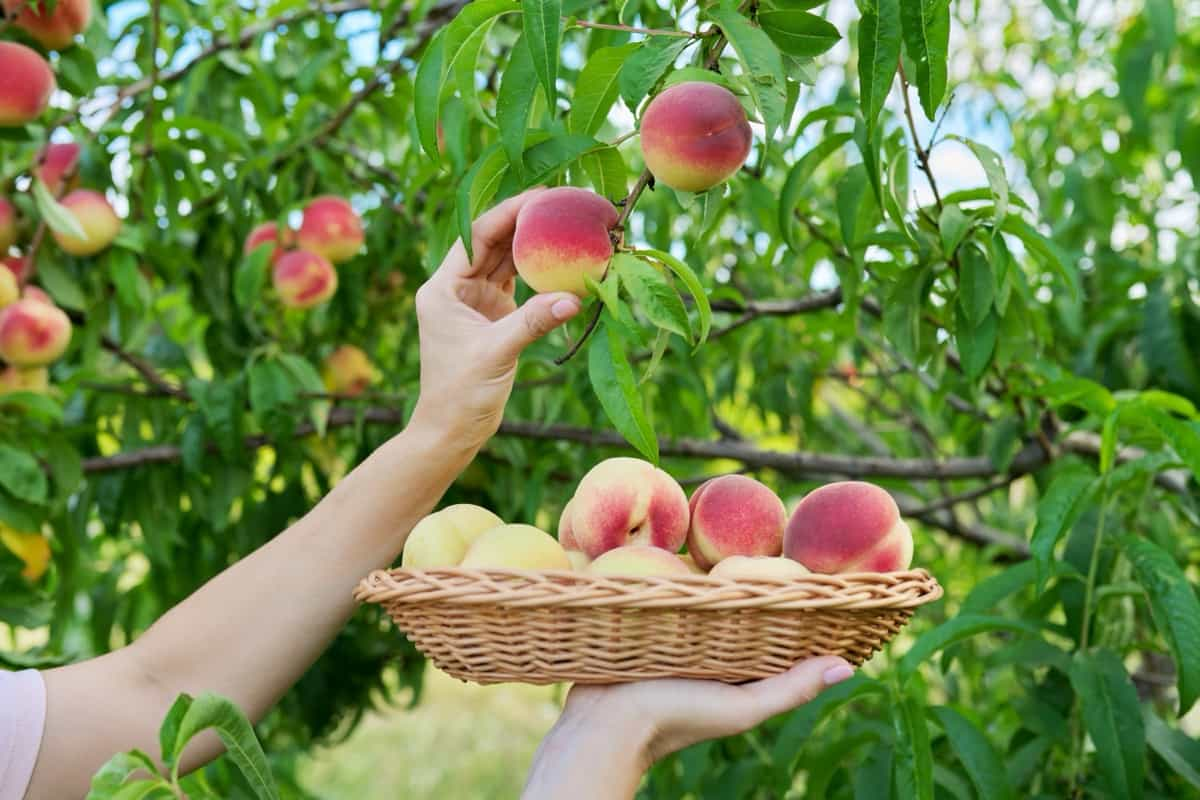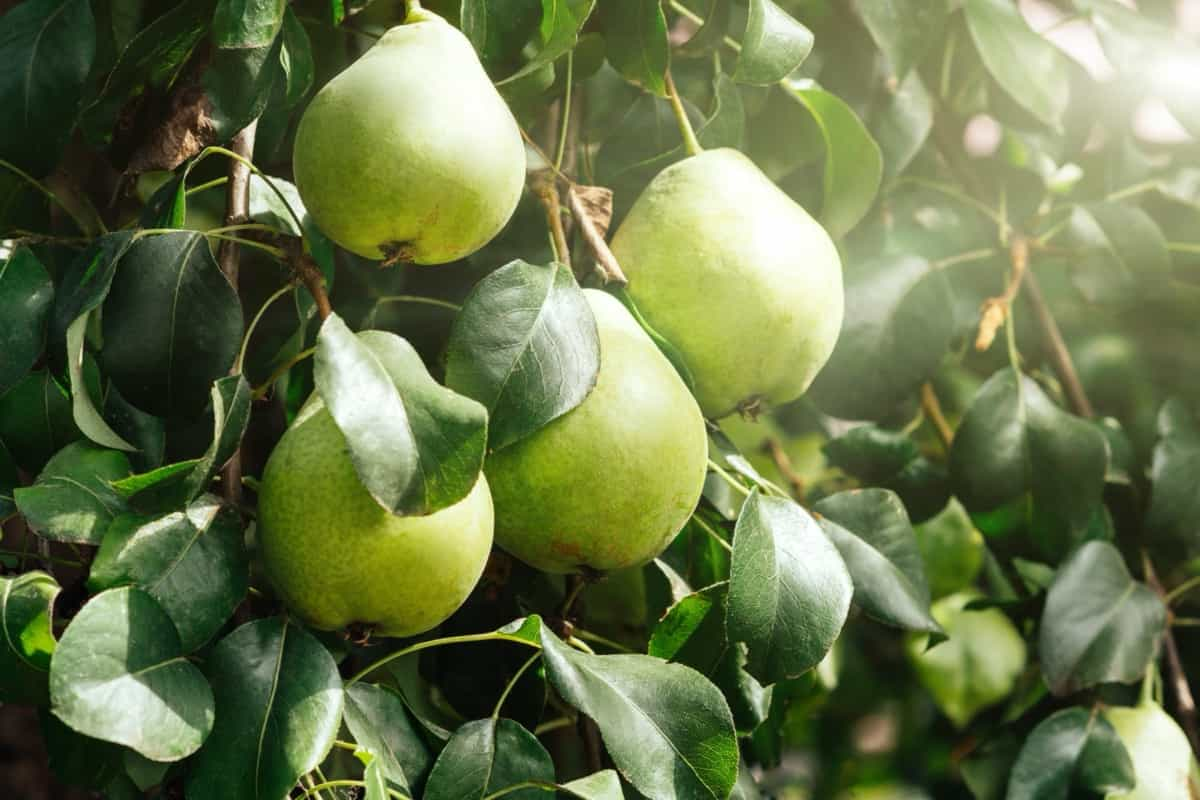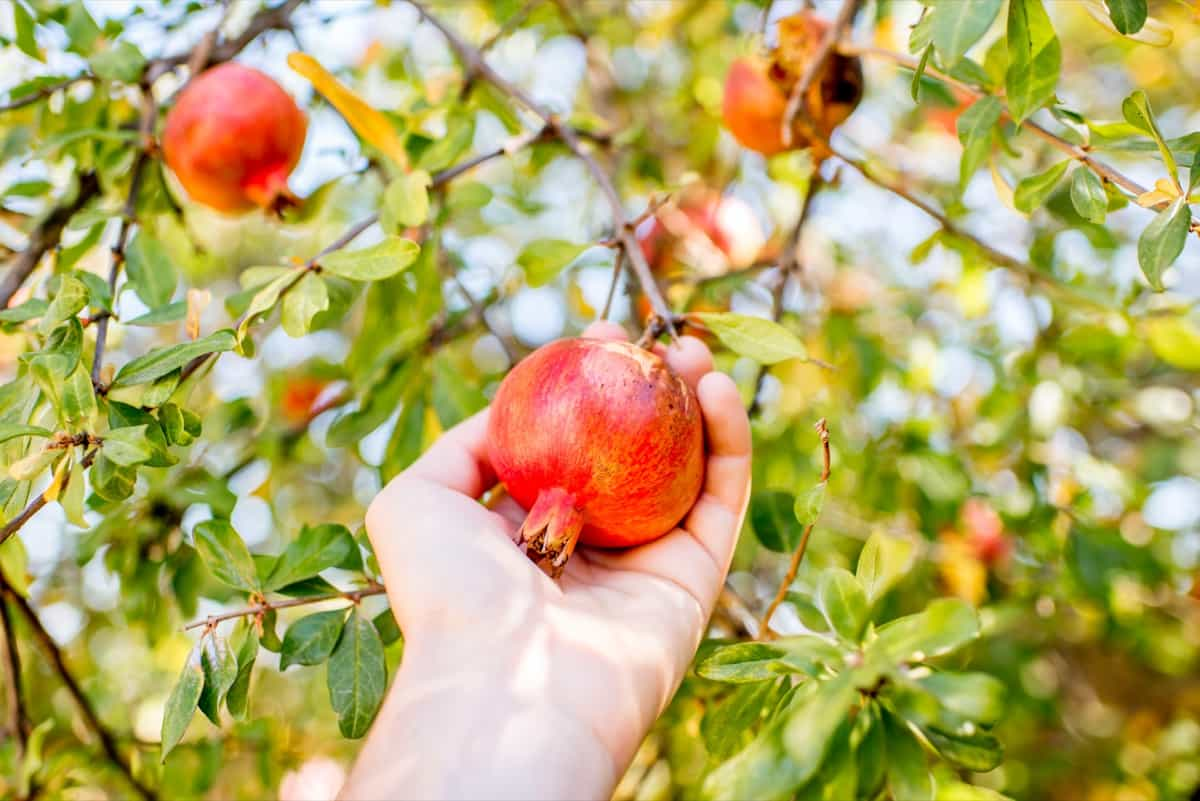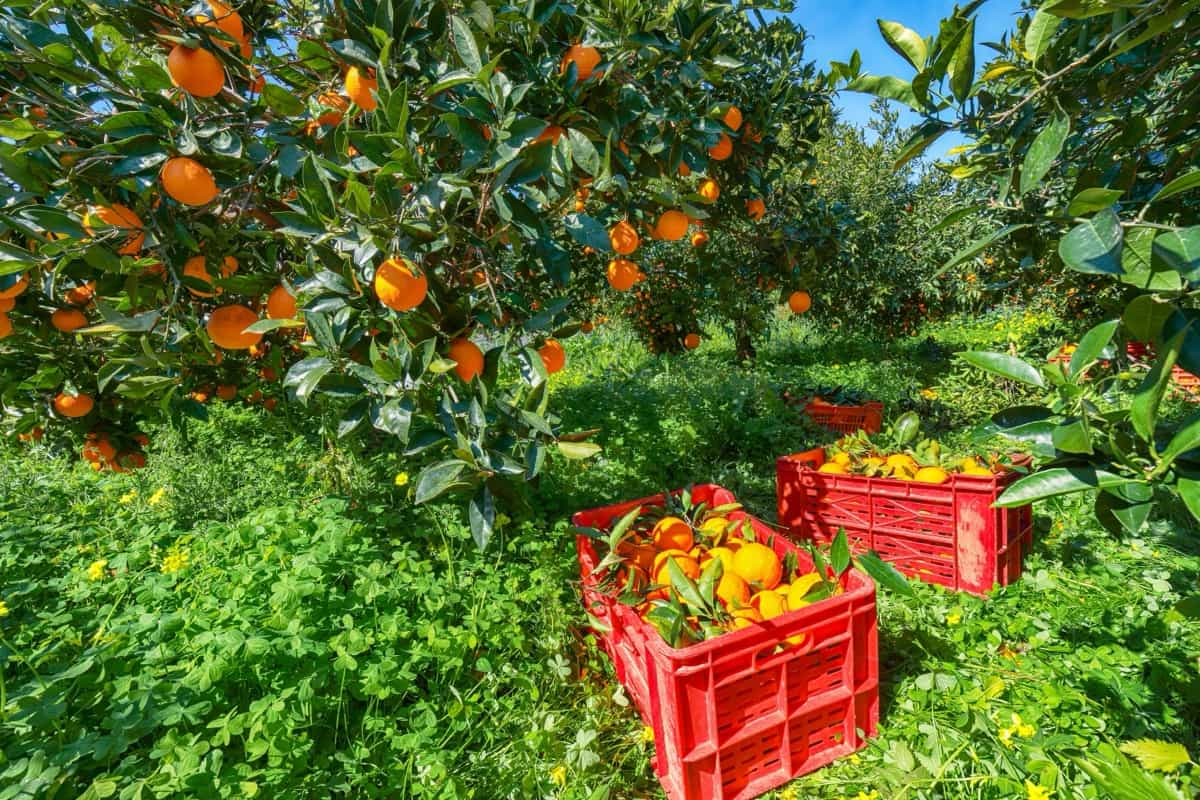Fruit drops can occur due to various factors, including environmental, pest-related, and tree-specific issues. To understand why fruits fall prematurely, thorough observation is essential. Environmental factors like strong winds, heavy rain, or drought can weaken fruit attachments, causing them to drop. Pests like aphids, fruit flies, or birds may also contribute to fruit loss. Tree-specific issues like nutrient deficiencies, diseases, or improper pruning can also lead to fruit drop. By identifying the cause, you can tailor your prevention strategy effectively.

10 Natural Ways to Stop Fruit Fall
Keeping the Soil Healthy to Make Fruit Trees Strong
Maintaining fertile and well-balanced soil is essential for robust fruit trees. Organic practices, such as composting and mulching, enrich the soil with essential nutrients while enhancing its moisture retention. Regular soil testing helps identify any deficiencies and guides appropriate amendments.
Avoiding excessive chemical fertilizers is recommended to promote beneficial soil microbes. Based on the tree’s needs, proper watering ensures the roots remain healthy. In addition, using organic pest control methods minimizes soil contamination and preserves the ecosystem. Healthy soil provides a solid foundation for strong, fruit-bearing trees, reducing the likelihood of fruit drop.
Using the Right Way to Prune Trees to Stop Fruit From Falling
- Winter Pruning: During the dormant winter months, selectively remove dead or weak branches, promoting better airflow and sunlight penetration.
- Thinning the Canopy: Prune overcrowded branches for better spacing between fruits. This helps reduce competition for resources and minimizes fruit drop.
- Remove Water Sprouts: These vigorous vertical shoots divert energy away from fruit production. Prune them to redirect nutrients to fruit-bearing branches.
- Heading Cuts: Make heading cuts to encourage lateral branch growth and minimize the vertical growth that can lead to fruit drop.
- Regular Maintenance: Consistent, annual pruning is crucial to prevent fruit drop and maintain the tree’s health.
Using Beneficial Insects to Stop Fruit From Falling
- Ladybugs: Release ladybugs in your orchard as they feed on mites, aphids, and other pests that can damage fruit trees.
- Parasitoid Wasps: These tiny wasps lay their eggs on harmful caterpillars, effectively controlling their numbers without chemical pesticides.
- Praying Mantises: These predators feed on various insects and can help maintain a balanced ecosystem in your orchard.
- Encourage Native Pollinators: Provide habitat for native bees and other pollinators to ensure proper pollination, leading to healthier fruit development.
- Companion Planting: Grow companion plants that attract beneficial insects and deter pests. For example, marigolds can deter aphids.
In case you missed it: How to Prevent Borers in Fruit Trees: How to Get Rid of Them with Natural and Home Remedies

Making Sure Fruit Trees Have Enough Nutrients to Prevent Fruit Fall
Ensuring your fruit trees receive adequate nutrients is essential to prevent fruit drop naturally. Do a soil test to know the specific nutrient needs of your trees. Organic fertilizers, such as vermicompost and well-rotted manure, are excellent choices to enhance soil fertility. Apply these early spring to provide essential nutrients like nitrogen, phosphorus, and potassium.
Additionally, consider mulching around the base of the trees with organic materials like straw or wood chips. Mulch helps conserve soil moisture and regulates temperature, promoting healthy root development. Healthy roots are crucial for the tree to support its fruit.
Giving the Right Amount of Water to Prevent Fruit Drop
Proper watering is another natural method to prevent fruit drop. Fruit trees need consistent moisture, especially during the growing season. Aim for deep, infrequent watering rather than frequent shallow watering. Install a drip irrigation or use a soaker hose to directly provide a slow, steady water supply to the roots.
Keep an eye on the soil’s moisture level, ensuring it remains moist but not soggy. Regularly monitor weather conditions and adjust your watering schedule to prevent under- and overwatering, which can lead to fruit drop. Proper irrigation supports fruit development and minimizes the risk of premature fruit fall.
Keeping Pests and Diseases Away to Avoid Early Fruit Drop
Preventing pests and diseases is crucial for keeping fruit on your trees. One natural method is companion planting. Planting insect-repelling herbs like basil, mint, or marigolds near fruit trees can deter pests. Maintaining good hygiene by removing fallen fruit and regularly pruning helps eliminate hiding spots for disease-carrying organisms. Organic neem oil or garlic-based sprays can act as natural insect repellents without harming the environment.
In case you missed it: How Drip Irrigation in Banana Plantations Will Increase Fruit Size and Yields

Releasing beneficial insects like lacewings and ladybugs can also help control harmful pests. They prey on insects that damage fruit trees, reducing the risk of fruit drop. Finally, consider introducing nematodes to the soil, as they can target root-damaging insects and prevent fruit loss due to weakened trees.
Using Mulch to Naturally Protect Against Fruit Fall
Mulching is a highly effective natural method to prevent fruit drop. Apply a layer of organic mulch, like grass clippings, straw, or wood chips, around the base of your fruit trees. This acts as a protective barrier, regulating soil temperature and moisture levels while suppressing weed growth.
Mulch also enhances soil fertility, providing essential nutrients to the tree’s roots. By maintaining optimal conditions, mulch helps reduce stress on the tree, minimizing the likelihood of premature fruit drop. Regularly replenish the mulch layer to ensure continued protection throughout the growing season.
Improving Pollination for Better Fruit and Less Falling
- Plant Diverse Pollinator-Friendly Plants: Attract beneficial insects like butterflies, bees, hummingbirds, etc., to your garden by cultivating various nectar-rich plants that bloom throughout the growing season.
- Create Native Bee Habitats: Build native bee-friendly environments by providing nesting sites such as wooden blocks with drilled holes or bee houses, encouraging native bee populations to pollinate your fruit trees.
- Avoid Pesticides: Refrain from using chemical pesticides that may harm pollinators. Opt for organic pest control methods to protect pollinators and fruit trees.
- Hand Pollination: In the absence of sufficient pollinators, hand pollination can be effective. Gently transfer pollen using a soft brush or cotton swab.
Handling Extremes Weather Conditions to Stop Too Much Fruit From Falling
- Protect from Frost: Cover your fruit trees with frost blankets or cloths during frosty nights to prevent frost damage to blossoms and developing fruit.
- Provide Shade: Shade cloth or umbrellas can shield fruit trees from the scorching sun, reducing fruit drop due to excessive heat.
- Maintain Adequate Irrigation: Consistent watering during hot and dry spells is crucial to prevent fruit drop caused by drought stress.
- Windbreaks: Plant windbreaks, like tall shrubs or trees, to reduce the impact of strong winds on fruit trees, minimizing fruit detachment. By implementing these natural and organic remedies, you can enhance pollination and mitigate the impact of extreme weather conditions, reducing fruit drop and ensuring a bountiful harvest.
In case you missed it: How to Stop Flower and Fruit Drops in Apricot Trees: Prevention and Control Methods

Using Organic Ways to Control Pests and Reduce Fruit Drop
- Beneficial Insects: Encourage natural predators like ladybugs, lacewings, and parasitic wasps to control pest populations. Plant companion flowers and herbs to attract these beneficial insects.
- Neem Oil: It is a natural pesticide that can deter various fruit tree pests. Mix it with water and apply it to your trees as a spray.
- Companion Planting: Plant companion crops that deter common fruit tree pests. For instance, marigolds can repel aphids, while garlic can deter apple scabs.
- Traps: Use pheromone traps or sticky traps to capture and monitor pests. This can help reduce their numbers and prevent fruit damage.
- Pruning and Sanitation: Regularly prune and remove diseased or infested branches to stop the spread of pests and diseases to healthy fruit. Proper sanitation practices can help reduce fruit drop due to infestations.
Conclusion
In conclusion, preventing fruit drop through natural and organic remedies is both eco-friendly and effective. You can enjoy bountiful harvests while minimizing fruit loss by promoting pollination, reducing pests, and maintaining overall plant health. These practices benefit your garden and contribute to a sustainable and environmentally friendly approach to fruit cultivation. You can enjoy healthier trees and more abundant fruits with dedication and care.
- Ultimate Guide to Ossabaw Island Hog: Breeding, Raising, Diet, and Care
- Ultimate Guide to Juliana Pig: Raising Facts, Size, Diet, Care, and Lifespan
- Raising Lleyn Sheep: Disadvantages, Price, Uses, Characteristics, and Care
- Ultimate Guide to Meishan Pig: Breed Facts, Breeding, Raising, and Care
- Ultimate Guide to Teacup Pigs: Raising, Diet, Lifespan, Cost, and Care
- Guide to Raising Poll Dorset Sheep: Facts, Profile, Characteristics, Uses, and Care
- Ultimate Guide to Bighorn Sheep: Characteristics, Diet, Lifespan, Breeding, and Lifecycle
- Ultimate Guide to Raising Katahdin Sheep: Farming Facts, Breed Profile, Uses, and Care
- Ultimate Guide to Raising Oreo Cows: Belted Galloways Farming Facts, Profile, Uses, and Care